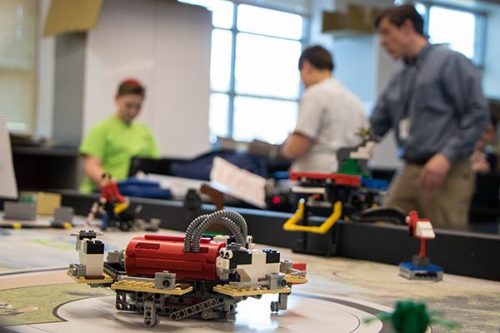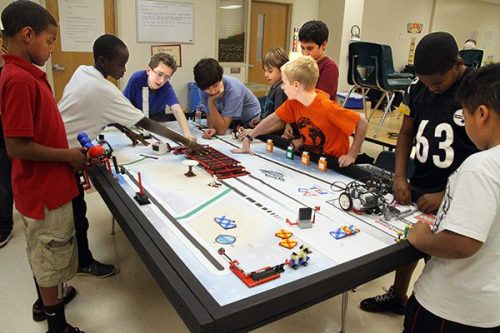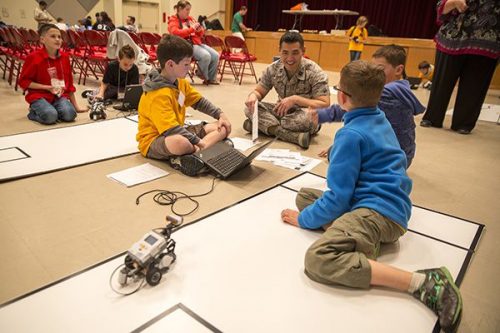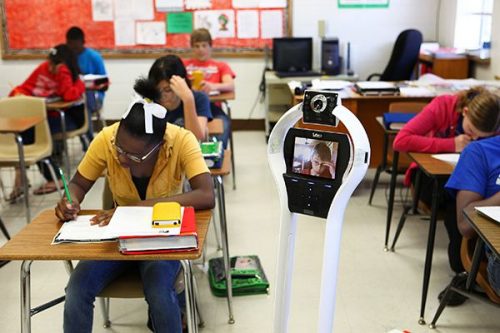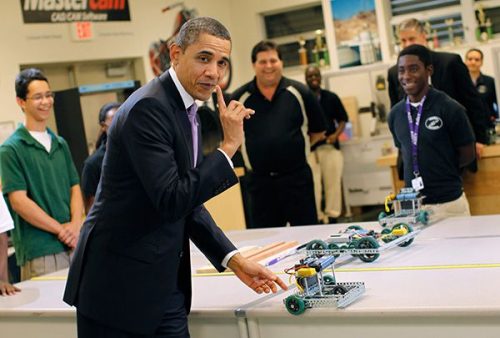Contemporary Robotics - Education

We're moving towards a world full of robots, that's a fact. In this series, we're taking a break for a second to assess where Contemporary Robotics are at today and what the future looks like. For this first chapter, we're focusing on robotics in Education.
Robotics are a cross-disciplinary field
Robots are used more and more each day in schools around the world. They get students excited and interested with an interactive project which provide a great sense of achievement when completed. And they allow students to directly observe the practical applications of theoretical concepts. They also teach them to work across multiple disciplinary fields. You have to understand electronics, mechanics, mathematics, physics, software, hardware,... to build a robot. Even a small project of a robot arm (like the LynxMotion AL5D) to grip and move objects can teach students a lot of things. They'll have to assemble the arm, connect the electronic parts, calculate the necessary force to lift objects, program the interactions with the arm and its intelligence.Robotics improve attending to school
As we mentioned above, robotics make learning more fun and interactive. Thus making attending to school more fun and interactive. Indeed, "almost anyone who has worked with children and robots will tell you that it was electric and that the children got a lot out of the experience". This energy and interest can be harnessed for educational purposes, as well as increasing the attendance rate and the number of students pursuing degrees in sciences. For instance, 90% of all Robots.education attendees indicated they'd like to learn robotics after they were presented with the field. It was also witnessed during a competition in Melbourne in 2000 that participating in a robot competition had a positive impact on the children's behavior. The teachers highlighted the teamwork witnessed. Motivated by a common goal to achieve, the children listened to each others. Last but not least, robots could also improve attending to school for children with severe diseases or handicaps. Thanks to telepresence robots, they could attend regular classes, socialize with other children. Making their life more "normal" and breaking the isolation they could suffer from.Robotics prepare today's students to tomorrow's challenges
As our future will be full of robots (see our previous series "Why Do We Need Robots?"), it's essential that today's students are familiarized with robotics as early as possible. In 2009 already, former President Barack Obama put robotics at the heart of his campaign "Educate to Innovate" to fight against dropout and prepare the future generations to the challenges they will have to face tomorrow. Furthermore, as robotics will be more and more part of our daily lives and jobs, robotics knowledge will become a mandatory skill to find employment. In the very same fashion that computer proficiency was reserved to programmers in the 1980's and is now a requirement for all office jobs. And if we want the future generations to be fully adapted to tomorrow's world of work, we need to give them the skills and tools they need to have. And avoid having to teach them later in life when faced with difficulties to find a job.Thanks for helping to keep our community civil!
Notify staff privately
You flagged this as spam. Undo flag.Flag Post
It's Spam
This post is an advertisement, or vandalism. It is not useful or relevant to the current topic.
This post is an advertisement, or vandalism. It is not useful or relevant to the current topic.
You flagged this as spam. Undo flag.Flag Post



